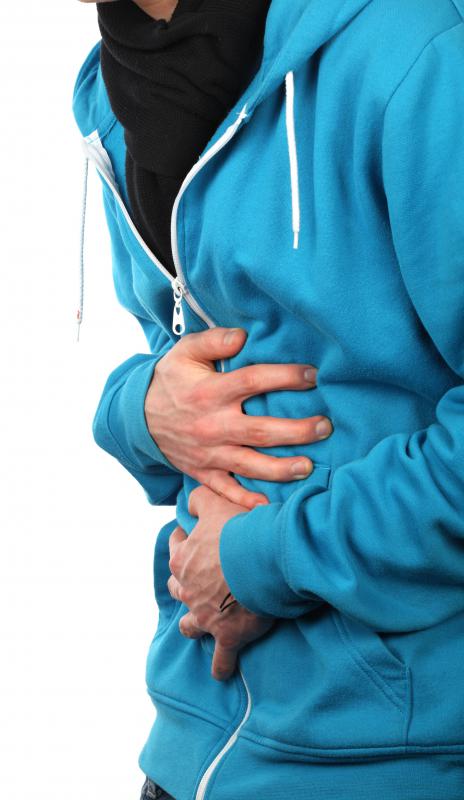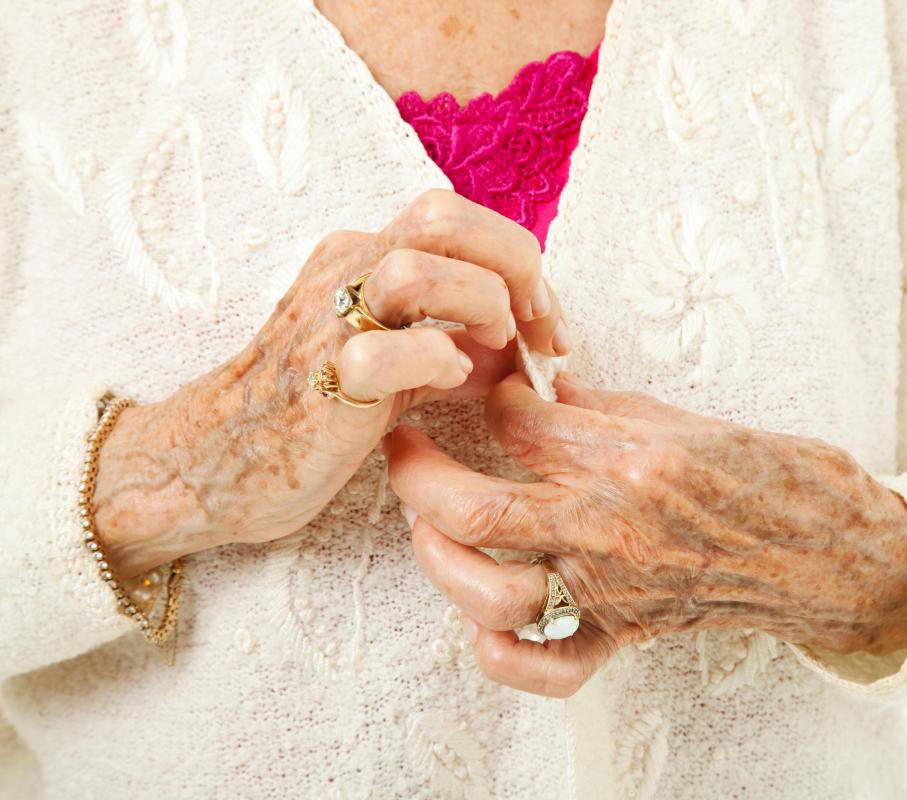At TheHealthBoard, we're committed to delivering accurate, trustworthy information. Our expert-authored content is rigorously fact-checked and sourced from credible authorities. Discover how we uphold the highest standards in providing you with reliable knowledge.
What are the Signs of an Aleve® Overdose?
Taking too much Aleve®, or naproxen, can lead to an overdose. Signs of an Aleve® overdose are confusion, dizziness, and slow or shallow breathing. Other signs include nausea, stomach pain and vomiting. An overdose is a serious matter and can lead to death if untreated. A person who exhibits symptoms of an Aleve® overdose should seek immediate medical attention.
Much like other drugs, Aleve® comes with a long list of side effects. Some of these side effects overlap with signs of an Aleve® overdose, such as dizziness and nausea. Serious side effects a person might experience with Aleve® are allergic reaction, chest pain and fever. Less serious, but more common, side effects include constipation, drowsiness and headache. A sufferer of serious side effects, or common side effects that persist or get worse over time, should see a doctor.

To avoid an Aleve® overdose, a person should take care to follow the directions given to him or her by a doctor. If the drug is acquired and used in nonprescription form, a person should comply with the directions on the package label. He or she should not take an excess amount of Aleve® or take the medication for a longer period of time than recommended. For further safety, a person should also be aware of the warnings and precautions of taking such a drug.

Aleve® is a nonsteroidal anti-inflammatory drug (NSAID). NSAIDs are a type of medication used to treat pain and inflammation due to a variety of medical conditions. These medical conditions include headache, menstrual pain and different forms of arthritis, such as osteoarthritis and ankylosing spondylitis. As an NSAID, Aleve® helps treat these and other medical conditions, but it can also cause others, too.

Medical conditions such as ulcers and stomach or intestinal bleeding can occur as a result of taking Aleve®. If alcohol or tobacco is used in combination with the drug, the risk of stomach bleeding can be increased. Aleve® can also increase a person’s chances of suffering a heart attack or stroke.
Before taking Aleve®, a person should let a doctor know of any other medications that he or she also takes. This is because Aleve® can interfere with other types of drugs. Examples of these drugs include antidepressants, blood-thinners and diuretics. Existing medical conditions can also interfere with Aleve® as well. Medical conditions a person should disclose include heart problems, liver or kidney disease and nasal polyps.
AS FEATURED ON:
AS FEATURED ON:















Discussion Comments
From personal experience, I know Aleve is extremely painful if you overdose on it. I had chest pain, and had to go to the emergency room. It's not fun at all, so please, do not mess with Aleve!
I'm not a doctor but as far as I know, the main problem with overdosing on NSAIDs (non-steroid anti-inflammatory drugs) like Aleve is that it can cause stomach ulcers and stomach bleeding which is dangerous. And that will certainly cause gastro-intestinal symptoms like the ones mentioned in the article.
Even if someone doesn't have Aleve overdose symptoms, this doesn't mean that the medication hasn't caused any harm. This is why I'm very careful when I take NSAIDs. I always take them on a full stomach, with a glass of milk beforehand to protect my stomach. And I always take the least possible dose.
I came close to overdosing on Aleve once. I had a terrible toothache and a regular dose of Aleve didn't work, so I took more. I didn't realize that I took too many until a few hours later. I started experiencing stomach cramps and heartburn. It was then that I read the label and realized I had gone over the limit.
I did call poison control and they said that if I had any more symptoms like nausea, dizziness and vomiting, that I would have to go to the hospital. But I didn't have any more symptoms so I didn't go. I know what I did was very dangerous and irresponsible though.
Will all of these symptoms occur if someone overdosed on Aleve? Or is it possible to experience only one or two of the symptoms?
Post your comments